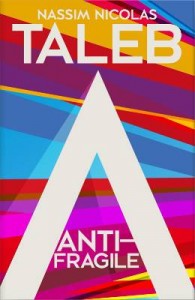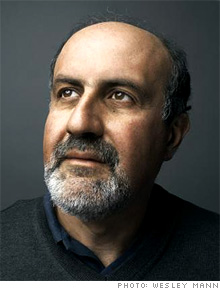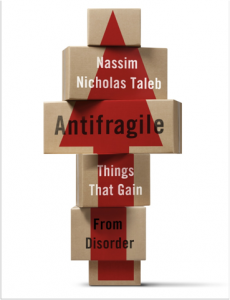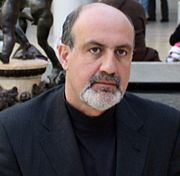 Just spotted Nassim Taleb’s upcoming book Antifragile on Penguin Books UK website. The website shows a different cover to the stacked boxes in the post below, and has a different subtitle “How to Live in a World We Don’t Understand” which would presumably be for the UK market. Publish date appears to be 27th of November 2012.
Just spotted Nassim Taleb’s upcoming book Antifragile on Penguin Books UK website. The website shows a different cover to the stacked boxes in the post below, and has a different subtitle “How to Live in a World We Don’t Understand” which would presumably be for the UK market. Publish date appears to be 27th of November 2012.
Antifragile: How to Live in a World We Don’t Understand
http:// www. penguin. co. uk/ nf/ Book/ BookDisplay/ … .html
Synopsis
In his global bestseller The Black Swan, Nassim Taleb explained the existence of high impact rare events beyond the realms of normal expectations. In his new book, Antifragility, Taleb goes much further. He tells us how to live in a world that is unpredictable and chaotic, and how to thrive during moments of disaster. Antifragility is about loving randomness, uncertainty, opacity, adventure and disorder, and benefitting from a variety of shocks. It is a new word because it is a new concept.
Many of the greatest breakthroughs in human endeavour come from the trial and error that is part of antifragility. And some of the best systems we know of, including evolution, have antifragility at their heart. Medicine, economics, even politics, could all be improved by embracing it. Our failure to realize this has even led to many huge historical misunderstandings about religion and belief.
So, how can we take advantage of antifragility? Taleb ranges over ideas and real-life situations, from why debt brings fragility, to why if we lose nothing we will gain nothing, to show that chaos makes us human. The most successful of us, the most daring, relentless and creative will take advantage of this disorder and invent new, more powerful opportunities and advantages beyond our expectations.





